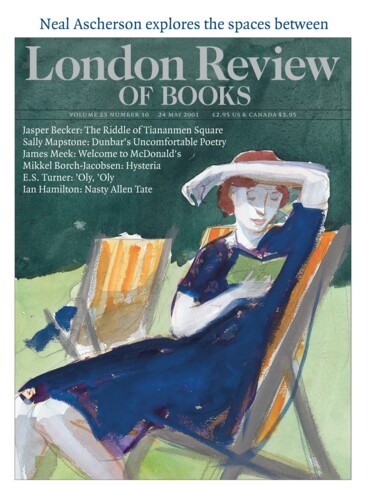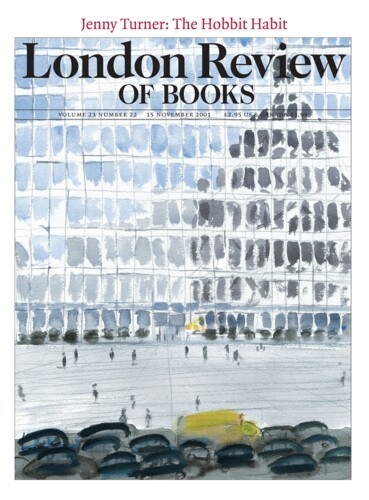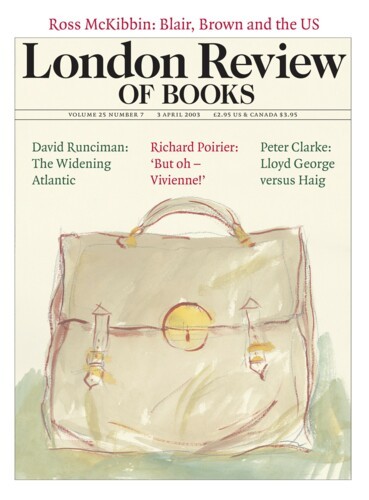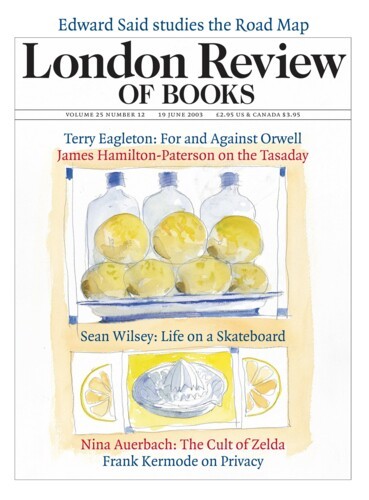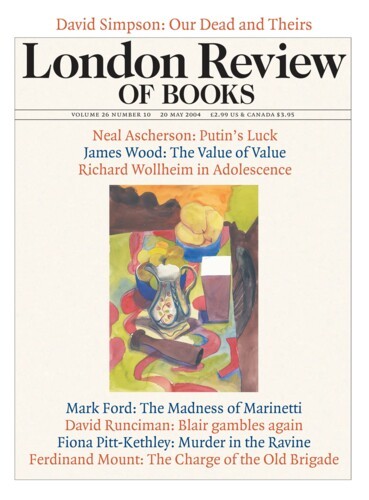Touches of the Real: Stephen Greenblatt
David Simpson, 24 May 2001
New historicism was a 1980s thing, a literary critical movement that took shape on the West Coast, becoming established there and elsewhere as what one could talk about after having talked for long enough about feminism, deconstruction and literary theory. The term may have been coined by Stephen Greenblatt in an essay of 1982; if so it was already a restrike, minted from a prototype used by...
